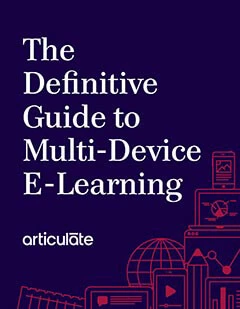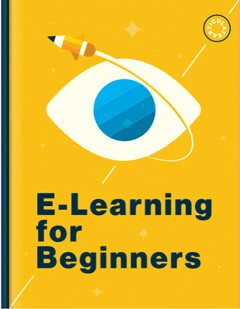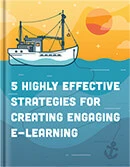Articulate 360 FAQs: Articulate Localization
Article Last Updated
This article applies to:
Articulate Localization enables you to deliver multi-lingual training to your global workforce at record speed. See these FAQs for answers to common questions about Articulate Localization.
- What is Articulate Localization?
- Can I try Articulate Localization features before making a purchase?
- What languages are supported?
- Are there limits to how many languages we can translate a course into?
- What counts as a translation?
- What gets translated?
- What is language formality?
- Do you support a glossary of terms? Is there a size limit for the glossary?
- Do you have a translation memory? Can we use or integrate our translation memory?
- What translation engines are you using? How will you decide which to use for a given project?
- How accurate are the AI translations?
- Does Articulate Localization work with Reach 360?
- How do my Reach 360 learners select a language?
- Where can I find information on how to use the Localization features?
- How can I share feedback or report issues?
- Do language validators need an Articulate 360 seat?
- If we embed a Storyline block into Rise 360, will that get translated?
- Will validators be able to edit the source files?
- Can Rise 360 collaborators access multi-language courses?
- Can Storyline 360 collaborators access multi-language project files?
- Can I use my translation management system (TMS) or translation provider with Articulate Localization?
- Can export and import XLIFF or Word files with Articulate Localization?
- What happens to my content when Articulate Localization is switched off?
- How much does Articulate Localization cost? How do I purchase it?
- Can I purchase Articulate Localization if I’m on an individual Articulate 360 subscription?
- How are you ensuring data security with Articulate Localization?
- What data will Articulate Localization have access to, and how will it use my data?
General
What is Articulate Localization?
Articulate Localization is a localization solution built specifically for L&D, with native integration to the #1 e-learning platform for creating workplace training. It allows course creators to deliver multi-language training to a global workforce, streamlined with integrated AI translation, in-context translation validation, and end-to-end workflow—all right from within Articulate 360.
Can I try out Articulate Localization before buying it?
Yes. All active Articulate 360 subscriptions are eligible for a 21-day free trial, including 20 translations. Articulate 360 owners and account admins can activate the trial right from the Manage Subscription page. During the trial, all seatholders can translate content in Rise 360 and Storyline 360 and start the localization workflow. Account owners and account admins can remove an author’s translation access via the Localization section on the Manage Team page. If you purchase from a trial, your translation access settings are retained.
What languages are supported?
Find a complete list of 70+ supported languages here.
Are there limits to how many languages we can translate a course into?
You can translate a course into as many languages as we have support for. However, there are quantity limits for the total number of translations you can initiate based on the terms of your subscription.
What counts as a translation?
We count a translation as a translation run of a course in one language (the source language) into one language or dialect (a target language). For example, translating two courses into five languages will count as 10 translations. For Rise 360, a course is a tile in your dashboard, either a course or microlearning. For Storyline 360, a course is a project (*.story) file.
Once translated, Rise 360 presents multi-language courses as a single 'stack' tile in your dashboard. Storyline 360 stores all languages in the same project (*.story) file. Adding a new target language to a multi-language course also counts as a translation.
Retranslating or using AI translation for existing languages in a multi-language course or project within the same Articulate 360 subscription contract term does not affect your total purchased translation count.
Note: For Rise 360, if you duplicate the multi-language course or send a copy to someone else, any new translations on the copy—including translating text updates—will be counted. For Storyline 360, however, copies of the project file—such as those created using File > Save As or shared with other authors—are treated as the same multi-language project. Note that the *.story file must be saved after the first translation run to link succeeding retranslations.
What gets translated?
Course texts and closed captions in Rise and Storyline are translated. See more details about what gets translated here.
Text-to-speech, text within images or videos, embedded media originating from outside Articulate 360, or linked/attached resources (like PDFs) are not translated at this time.
What is language formality?
In some languages, formality adjustments affect the tone, pronouns, and related words used in the translation. The Automatic setting—the default—determines the best tone based on your content.
Use our language lookup tool to see if your target languages support language formality.
Do you support a glossary of terms? Is there a size limit for the glossary?
Yes. Any account admin can upload the glossary of terms under the localization settings of the Manage Subscription tab in the account management console. Learn how to use the AI translation glossary.
The total glossary file can be up to 10MB, and each individual glossary entry must be less than 200 bytes.
Do you have a translation memory? Can we use or integrate our translation memory?
We are actively evaluating and prototyping translation memory models to determine the best fit for our workflow. Although integrating an external translation memory is not currently on our roadmap, we are exploring its potential benefits and may consider it in future developments.
What translation engines are you using? How will you decide which to use for a given project?
We are using a combination of DeepL and Amazon Web Services (AWS), which we thoroughly vetted for translation quality, language coverage, and privacy and security standards.
Our built-in translation defaults to DeepL (the industry-leading provider) for most languages, and to AWS for languages that DeepL doesn’t cover.
We’re also working to add more translation engines to expand our language coverage.
How accurate are the AI translations?
Accuracy can vary depending on the language pairs involved in the translations. We chose industry-leading translation engines based on quantitative evidence presented in academic research. Our early beta customers in several global markets have been generally impressed with the quality of our AI translation compared to other machine translations they’ve tried. However, translation quality is subjective and depends on factors such as language pairs used, subject matter, and each organization’s preferences. That’s why we also included a glossary and developed an in-context human validation workflow in Review 360, to make the content just right for your audience.
Does Articulate Localization work with Reach 360?
Yes! Simply publish your multi-language training to Reach 360, then enroll learners. Learners see the course in their preferred language (if available) and can select other languages without disrupting their training progress.
Question-level reporting also supports multiple languages. Even if a learner switches between languages for each question, all responses are included in the report. Learn more about distributing multi-language training with Reach 360.
How do my Reach 360 learners select a language?
Reach 360 learners automatically see content in the language they selected in their user profile. They can also choose from all available languages in the drop-down menu shown at the top of each training.
Authoring and Support
Where can I find information on how to use the Localization features?
Check out our Articulate Localization user guide series to get started.
How can I share feedback or report issues?
We’d love to hear about your experience with Articulate Localization. Look for the Help & Feedback links in:
- Rise 360: Launch a multi-language course from your dashboard. From the stack overview, click the Help & Feedback link at the bottom of the sidebar.
- Storyline 360: Open a multi-language project file. Click the language menu on the top right and choose Help & Feedback… at the bottom of the menu.
- Review 360: Launch a multi-language item from the dashboard and select any target language from the sidebar. Choose the Translate tab at the top and click the ? (question mark icon) at the bottom right.
From your chosen app, select the Share Feedback / Report an Issue button from the pop-up message to launch the feedback form on your browser. Fill in the details and submit.
Do language validators need an Articulate 360 seat?
No, language validators don’t need an Articulate 360 seat. Similar to reviewers for Review 360 items, they only need an email address.
If we embed a Storyline block into Rise 360, will that get translated?
Embedded Storyline blocks in Rise 360 courses are not translated. As a best practice, you could translate your slide or scene in Storyline first before embedding it as a Storyline block.
Will validators be able to edit the source files?
In our workflow, validators use Review 360 to review the translation. That means the edits they make are saved as suggestions, which the author can accept or reject from Rise 360 or Storyline 360. If you want a validator to edit the source file directly, they'll need an Articulate 360 seat to use the authoring apps and proper permissions to access the source files.
Can Rise 360 collaborators access multi-language courses?
Collaborators must have Articulate Localization to access multi-language courses. Course managers and editors can view and edit multi-language courses, but only course managers can initiate course translations and manage languages.
Collaborators without access to Articulate Localization can’t access multi-language courses, but course managers can save separate copies of each language to their account when they try to launch a multi-language course.
Can Storyline 360 collaborators access multi-language project files?
Collaborators must have Articulate Localization to access multi-language project files. If they don’t have Localization, they’ll be prompted to save the languages individually.
Can I use my translation management system (TMS) or translation provider with Articulate Localization?
Not at this time. However, we are working on an HTML import/export workflow for Localization that would allow customers to use their own translation provider to translate an HTML document containing the course content. It would then be possible to import the translated versions of the source HTML file into the course, turning it into a multi-language course.
Can I export and import XLIFF or Word files with Articulate Localization?
You can’t export and import XLIFF or Word files in multi-language courses. However, you can save languages as separate courses or project files and export/import the XLIFF or Word file for each language as you would in a regular single-language course. Note that localization features like language validation and multi-language workflow management won't be available for these course copies. Here’s how to save translated courses for Rise 360 and save translated projects for Storyline 360.]
What happens to my content if Articulate Localization is switched off?
You retain access to all the content you created, but you’ll lose language management features such as course stack views in Rise 360 and Review 360 or multi-language projects in Storyline 360. When you open a multi-language course or project, you’ll have the option to save the languages individually. You can also save copies before Articulate Localization is switched off. Here’s how to save translated courses for Rise 360 and save translated projects for Storyline 360.
When you regain access to Articulate Localization, you can continue where you left off.
Account Management
How do I track the number of translations I’ve used?
Account owners and account admins can view the team's translation usage and total purchased translations for the term in the Localization section of the Manage Subscription page.
Can I limit who can run translations?
Yes! Account owners and account admins can grant or remove translation access from the Manage Team page. When you start a trial, all seatholders will automatically have access to translate content in Rise 360 and Storyline 360. If you purchase directly without a trial, all seatholders won't have access to translate by default.
Sales
How much does Articulate Localization cost? How do I purchase it?
Contact our sales team. Articulate Localization is priced according to your specific needs, and they can help you find the right fit.
Can I purchase Articulate Localization if I’m on an individual Articulate 360 subscription?
Yes. Articulate Localization may be purchased for both individual and Teams subscriptions.
Security and Privacy
How do you ensure data privacy security for Articulate Localization?
Security and privacy have always been our top priorities. We will continue to ensure safety and confidentiality for Articulate Localization through:
- Data privacy and integrity
- Other than the glossary, AI features do not retain or log customer data.
- Customer data is not used for training AI translations.
- Our AI translation partners (DeepL, AWS) have been thoroughly vetted for data privacy and security.
- Data protection and encryption policies
- We employ robust encryption protocols.
- All data is encrypted in transit with a minimum of TLS 1.2 for all third-party localization services.
- We comply with data protection protocols including GDPR and CCPA.
- Ethical AI implementation
- Our features were designed to adhere to our stringent security and ethics guidelines.
What data can Articulate Localization access, and how does it use my data?
Articulate Localization treats your data in the same way that Articulate 360 does. Here are some specifics:
- If translation is done using DeepL, data is processed in their EU data center. No data is retained or stored for the translation process.
- If translation is done with AWS, data is processed in the United States or European Union depending on your Articulate 360 data center. No data is retained or stored.
- Glossary data will be stored in the DeepL EU data center and in the AWS data center matching your Articulate 360 data center. We retain glossary data for the duration of the subscription to provide the services under your agreement.
As with Articulate 360, you can be confident that your content/data will not be retained after the translation process, used to train translation engines, or shared with others.


